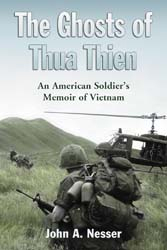MWSA Review
So often we speak of the soldier returning from war with a mysterious injury to the psyche and soul. Over the years it has been called many things, but today it is called Post Traumatic Stress Disorder (PTSD). The community pours in resources, sympathy, support and compassion for the veterans while often neglecting the widows, children and families. But what happens when the community itself is sucked into the fog and brutality of the horrific civil war? What is the soul and moral injury of the community?Widow of Gettysburg offers soul repair.
Jocelyn Green uses historical fiction to wrestle with the very divisive, blunt, boiling and true issues of the Civil War (and all wars) that still reside in our bloodstreams today. The book is prophetic, hopeful and extraordinarily challenging. All of her characters, including heroines, victims and villains, all have flaws and strengths. I found myself loving all of them even when their behaviors were sometimes despicable or psychotic. We must love our enemies.
Widow of Gettysburg rocked my soul. The story took me beyond history into a sacred place after the battlefield. Bitterness and sweetbread, brokenness and restoration, desperation and hope, hunger and relief, and hatred and powerful love triggered my senses. As a field hospital chaplain for over seven months in Iraq after the Battle for Fallujah, I also experienced the amputations of the body, spirit and soul. My return home and encounter with the families and friends of the fallen has been much more difficult, challenging and purging of my soul than I imagined. This book was extremely painful, but the healing of my soul was worth the excruciating pain.
Widow of Gettysburg is well researched, clever, prayerful, tearful, suspenseful and loaded with hope.I have a much more realistic and compassionate understanding of Abraham Lincoln’s Gettysburg Address and history of war itself. The world will little note, nor long remember what we say here, but it can never forget what they did here. It is for us the living, rather, to be dedicated here to the unfinished work which they who fought here have thus far so nobly advanced.
War can truly be confusing and morally ambiguous. As long as we breathe, the work is truly unfinished. In this historically truthful tale, one will better understand the devastation when people emotionally react to the polarities of north and south, union and confederate, slave and free state, left and right, or black and white. Jocelyn Green is a prophetess. Peace is attainable if we have the courage to acknowledge our own discrimination and then seek out Liberty and Beauty (Bella).
As long as we profit from war, we cannot live with the prophets or the prophetesses. Let us love one another.
To the widows and women of Gettysburg let us say, “Thank you for your service!”
MWSA Reviewer: Ron Camarda
Author's Synopsis
For all who have suffered great loss of heart, home, health or family; true home and genuine lasting love can be found.
When a horrific battle rips through Gettysburg, the farm of Union widow Liberty Holloway is disfigured into a Confederate field hospital, bringing her face to face with unspeakable suffering-and a Confederate scout who awakens her long dormant heart.
While Liberty's future crumbles as her home is destroyed, the past comes rushing back to Bella, a former slave and Liberty's hired help, when she finds herself surrounded by Southern soldiers, one of whom knows the secret that would place Liberty in danger if revealed.
In the wake of shattered homes and bodies, Liberty and Bella struggle to pick up the pieces the battle has left behind. Will Liberty be defined by the tragedy in her life, or will she find a way to triumph over it?
Inspired by first-person accounts from women who lived in Gettysburg during the battle and its aftermath, Widow of Gettysburg is Book 2 in the Heroines Behind the Lines
series. These books do not need to be read in succession. For more information
& resources about the Heroines Behind the Lines series, visit heroinesbehindthelines.com.




















